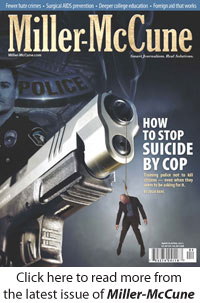What do you think of when you think of Nottingham? We know, we know — the shopping, the nightlife district, the … um … er … oh, who are we kidding? We all think of Robin Hood, of course. But try telling that to the city leaders.
Researchers from Nottingham University Business School surveyed nearly 400 visitors and locals on the question, “If I say ‘Nottingham’ to you, what immediately comes to mind?” Nearly one-third of respondents named the legendary archer and bandit; shopping came in second, followed by crime. (Apparently “stealing from the rich” really caught on in Nottingham, but not so much the “giving to the poor” part — where’s the sheriff when you really need him?)
But Robin and his Merry Men are a controversial topic in their supposed hometown. A Yorkshire-based challenge on whether Nottinghamshire’s Robin Hood links were legitimate reached the Houses of Parliament in 2004. Five years ago, in the wake of the dispute, Nottingham made headlines by dumping Mr. Hood as its trademark image in favor of a slanted “N” logo, at a cost of more than £100,000 to design.
The authors say their survey proves it’s time for the city to re-embrace its most famous, albeit probably mythical, hero. Although their research showed that people visiting Nottingham enjoyed themselves, many visitors expressed disappointment with the lack of the “Robin Hood dimension.” As the study’s co-author Anita Fernandez Young, a lecturer in tourism management and marketing, put it: “What we have in the case of Robin Hood is a brand without a product. We should recognize that Robin’s name is known worldwide. … And yet in Nottingham and Nottinghamshire — the places with which he’s most widely associated — Robin seems to disappear a little more each year.”

While it’s slightly painful to hear the Prince of Thieves referred to as a “brand” — about as painful as hearing Kevin Costner’s “British” accent — we have to agree: A pointy, green feathered cap and slender bow make more appealing tourist brochures than an “N,” no matter how futuristic. Get to it, Nottingham.
And finally, The Cocktail Napkin’s last word …
“If someone from BP is tweeting about the oil spill, for example, his opinions are likely to carry much more weight and be of much greater interest than those of Ashton Kutcher, who has a legion of followers.” — Ramanathan Narayanan of Northwestern University, who has designed a data-mining website that tracks the most influential tweeters in real time. We’re not sure what represents a sadder commentary on modern life: that “credibility” in the wake of a catastrophic environmental disaster is earned in 140-character chunks or that a former sitcom star is casually described as having “legions of followers.”
The Cocktail Napkin appears at the back page of each issue of Miller-McCune magazine, highlighting current research that merits a raised eyebrow or a painful grin.
“Like” Miller-McCune on Facebook.
Follow Miller-McCune on Twitter.
Add Miller-McCune.com news to your site.





